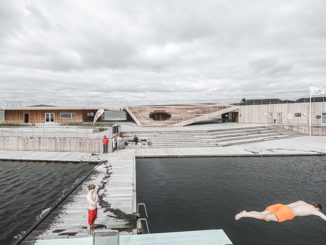As the second-largest desert in China, the Badain Jaran Desert is considered a main source of sandstorms. Minqin County, adjacent to the Badain Jaran Desert, was an important transportation hub and cultural intersection on the silk road, has rich historical relics and cultural values. However, the Oasis of Minqin is being eroded by desert at 2.3% of the land under northwest wind influence per year. The deterioration of the ecological environment has also caused many social problems, cultivated land decreased, poverty increased, population outflow, and made Minqin’s traditional civilization precarious. The pearl on the Silk Road is declining.
CONTEXT & PROBLEM
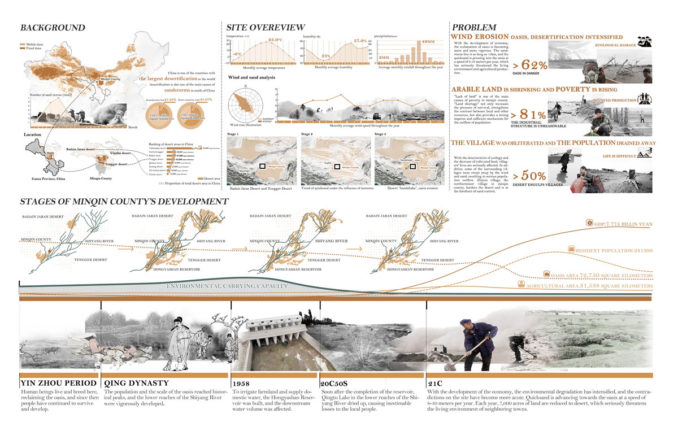
This project takes Minqin County as an example to study how to use natural work(Wind and water) to curb the erosion of quicksand on MinQin oasis, improve the living environment and provide new lifestyles for Locals.
The main problem to be solved as follows
1. In terms of Ecologically, the erosion of the northwest wind and sand-surrounded by desert on three sides, the oasis is gradually eroded by the wind-northwest wind.
2. In terms of production, cultivated land and increased poverty and intensifies-affected by water resources and wind and sand erosion.
3. In terms of life, the industrial structure is unreasonable, and the contradiction between people and land is gradually increasing-the desert devours villages. Simultaneously population flows out badly, and contradiction between people and land intensified.
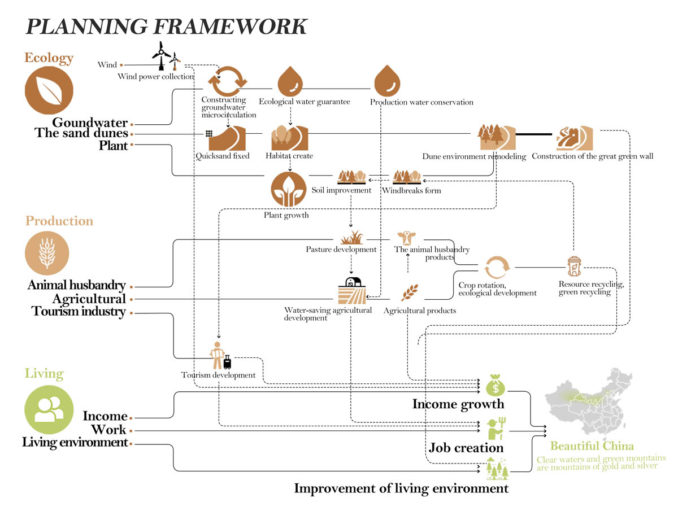
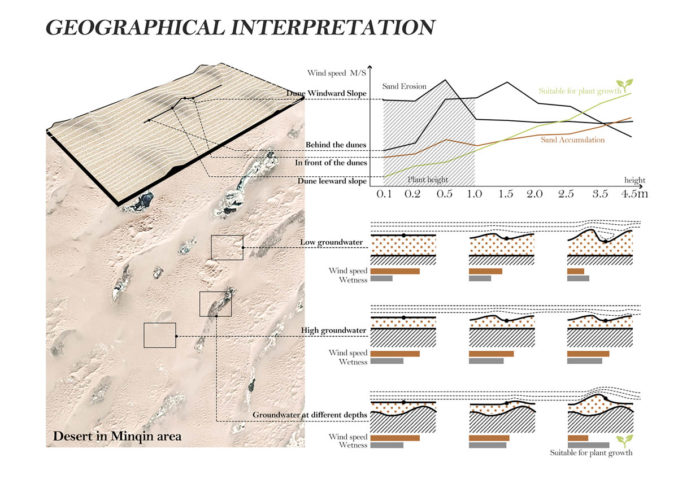
APPROACH
The design takes the desert edget in the northwest direction of Minqin County as the core area of the study.
By establishing a sustainable framework to show how to use the power of nature to reduce wind speed, fix the quicksand, and alleviate the problems of desert erosion oasis. On this basis, increase the planting area, develop Eco-friendly animal husbandry, and intensive agriculture to improve locals’ lives.
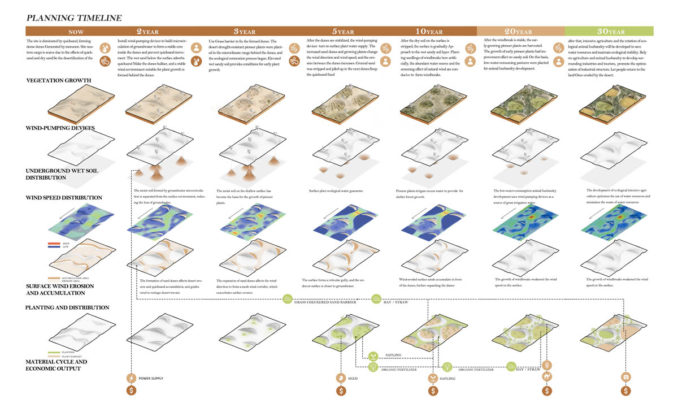
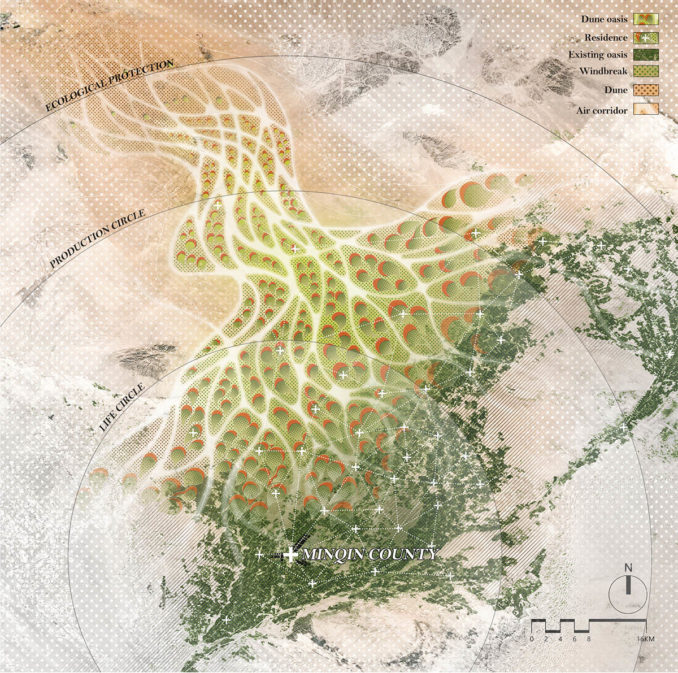
1. In terms of ecology, use the power of wind and water to shape windshield dunes. Related research shows that there is rich deep groundwater beneath Badain Jaran. So we use existing scientific devices to make full use of wind energy, convert wind into kinetic energy to raise the level of the groundwater, by raising the groundwater level, the sand could be attached under the device to form a fixed dune, and the device also uses water vapour to supply the groundwater. As a result, The dense dunes form a “dune wall” to reduce the wind speed and reduce the desert’s erosion in the oasis.

2.Use elevated groundwater and fixed dunes to create plant habitats on the leeward side of the dunes. After this, Plants can continue to grow on the leeward slope to stabilize the sand area and improve the soil. At the same time, Improved soil provides conditions for Eco-friendly animal husbandry and intensive agriculture.
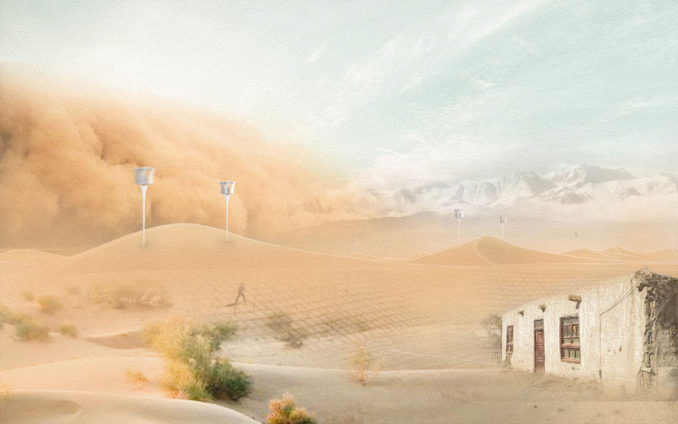
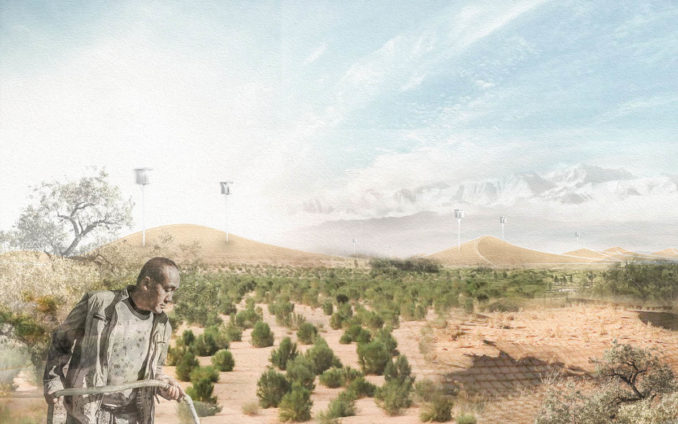
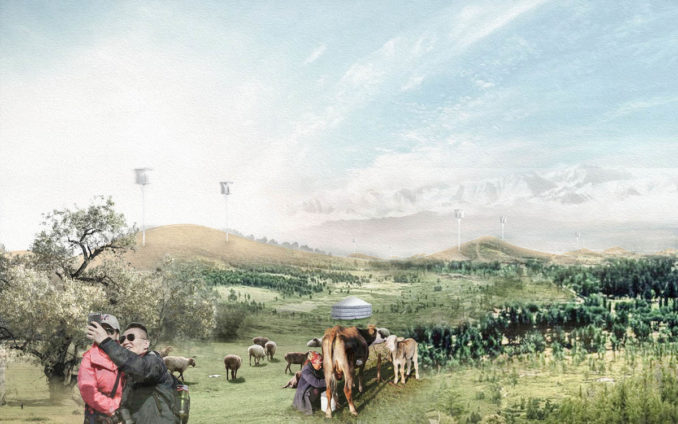
3. In terms of life, the unique desert plants and dense “dune wall” landscape have become the local characteristics of Minqin, the development of desert tourism can increase economic income and improve the living conditions of residents.
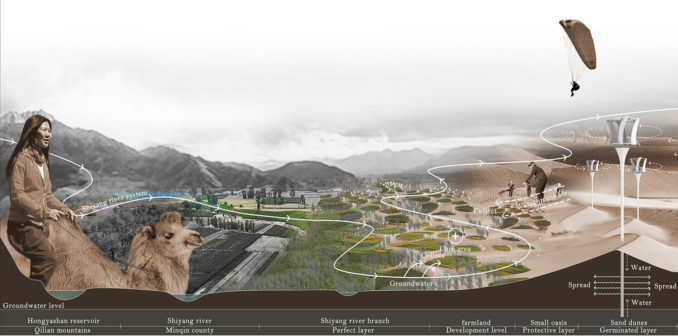
The long-term goal of this research is to promote ecological restoration through natural work, solve production problems, then improve the living conditions for local people, finally restore the prosperity of Minqin. This framework and model can play a demonstration effect for the sand control work in other regions.
Location: Minqin County, Gansu Province, China
Students:
Kai Wang, Beijing Forestry University
Haojun Yan, Beijing Forestry University
Ye Pu, Beijing Forestry University
Na Li, Beijing Forestry University

